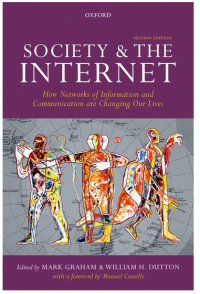Seminar on “Echo-Chambers” at the Catalan Association of Journalists
Invited by the Catalan Associación of Journalists, based in Barcelona, I sat in a round table to talk about the prevalence of echo-chambers in the online domain. The discussion brough together journalists and academics who debated about the prevalence and severity of news cosumption patterns that conform our world view. I shed light on some of the overstated claims around the role of technologies in facilitating segmented news consumption. A recording of the round table can be accessed in the link below (in Catalan):
Access here to the video of the round table on echo-chambers

Photo credit: Museum Victoria / Unsplash and Periodistes.org
















